If learning a new language were like baking a cake, vocabulary would be your ingredients. You might not know how to bake a cake perfectly but if you have enough ingredients, you can still make something edible. On the flip side, you could have all the baking knowledge in the world (think grammar and syntax) but without ingredients (vocabulary), you’d be left with an empty mixing bowl. That’s why, when it comes to learning a new language, vocabulary is king.
Vocabulary: The Foundation of Communication
Let’s get straight to the point: you can’t understand, speak or write a language if you don’t know the words. Grammar and structure matter, sure, but they’re secondary to the raw materials of communication. Learning vocabulary in a new language is like unlocking doors to entire worlds of meaning. The more words you know, the more you can say, hear and understand.
But here’s the catch: it’s really hard to remember new words. You might come across a word like “remarkable” once or twice a year. It’s important but how do you make it stick? And how do you figure out which words are worth the mental energy? Without a good system, expanding your vocabulary in a new language can feel like scooping water with a sieve—most of it just slips away.
That’s where Link-King changes the game. Using our structured, conditional, spaced repetition algorithm Link-King won’t let you forget new words. And it won’t give you new words until you’ve revised the words you need to revisit. It’s a powerful, efficient and incredibly effective system.
Not All Words Are Created Equal
Here’s a tip for language learning: not all words are worth remembering. Some words are frequent and essential. Others are so rare the majority of native speakers wouldn’t understand them.
That’s why Link-King uses a frequency-based rating system. Instead of throwing random words at you, the app feeds you the most common and useful words based on your current level. It’s personalized, smart and designed to expand your vocabulary in a new language optimally. You’re not just learning words; you’re learning the right words.
Vocabulary Powers Your Natural Immersion
Another reason we focus on vocabulary is that it fuels natural immersion. Think about it: if you can read and listen to content in your target language, you’re exposing yourself to grammar and sentence structure without even realizing it. It’s like osmosis—you absorb the language naturally.
Imagine being able to read a novel, watch a movie or follow a podcast in another language. That’s the ultimate goal for many learners. And guess what? Vocabulary is the key to getting there. By learning more words, you’re equipping yourself to engage with native materials which in turn reinforces your learning. It’s a virtuous cycle.
At Link-King, we endorse a “two ears, one mouth” approach: listen and read more than you speak at first. By focusing on understanding before production, you’ll avoid developing bad habits that can be hard to break. Speaking too early can sometimes lock in mistakes. So, build that vocabulary foundation and the speaking and writing will follow naturally.
(Check out this article on automatic language growth).
Why Link-King is Different
Link-King’s smart, structured, conditional spaced repetition combined with our frequency based rating system sets it aside from other language learning apps. It’s not just an app; it’s a tool that fits into a proven learning philosophy.
Think of Link-King as the personal trainer for your brain’s language gym. You’re not just lifting random weights; you’re following a plan tailored to your needs, helping you achieve results faster and more efficiently. The focus is always on empowering you to read, listen and truly immerse yourself in your target language by building your vocabulary in a new language.
Take the Next Step
Learning vocabulary in a new language doesn’t have to feel like a chore. With the right approach, it can be an exciting and rewarding process. Link-King is here to help you take your language skills to the next level. Start building your mental dictionary, unlock the power of understanding and watch your confidence soar.
Ready to see how it works? Download Link-King today and start learning the right words—words that will stick with you and help you achieve your language goals. Don’t just learn a language. Master it.



